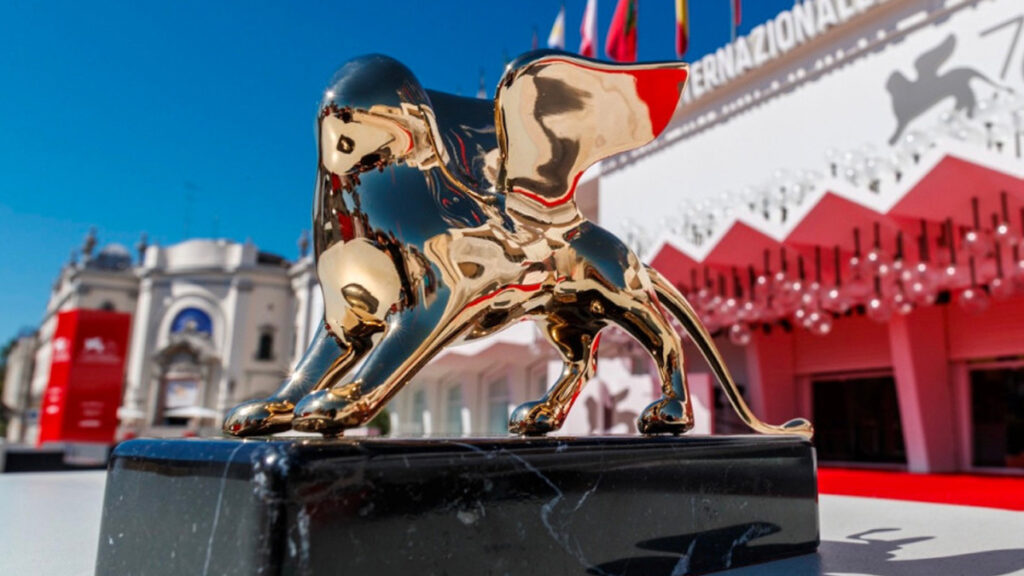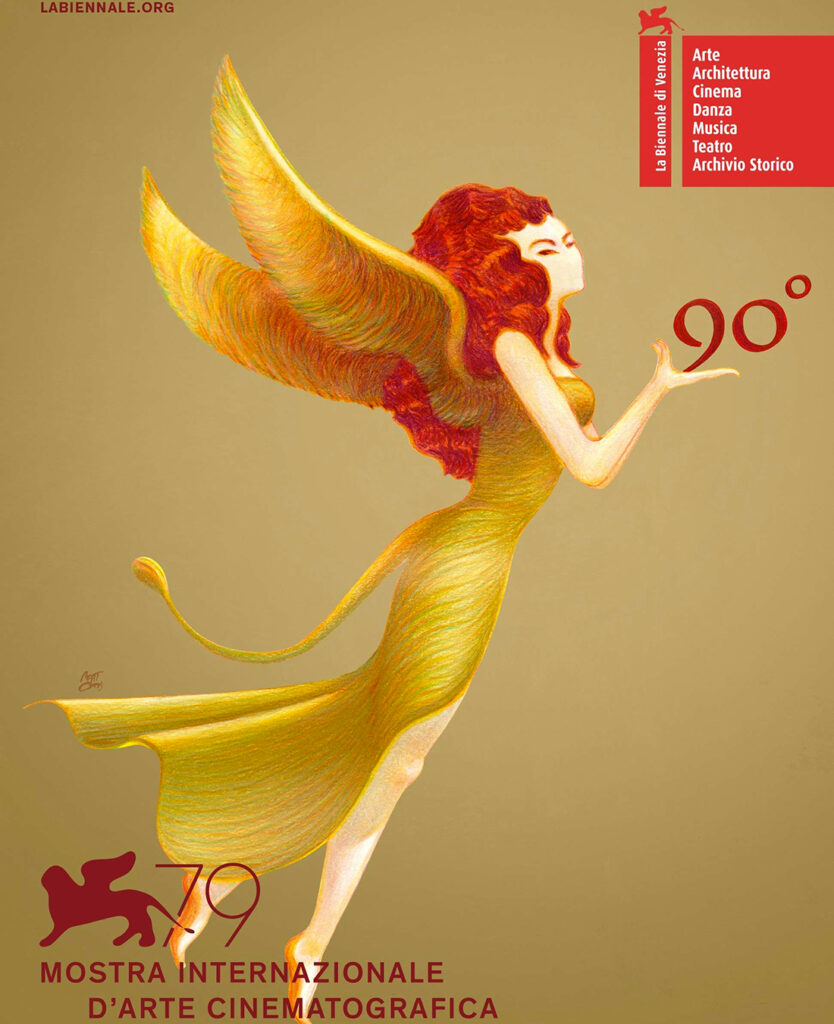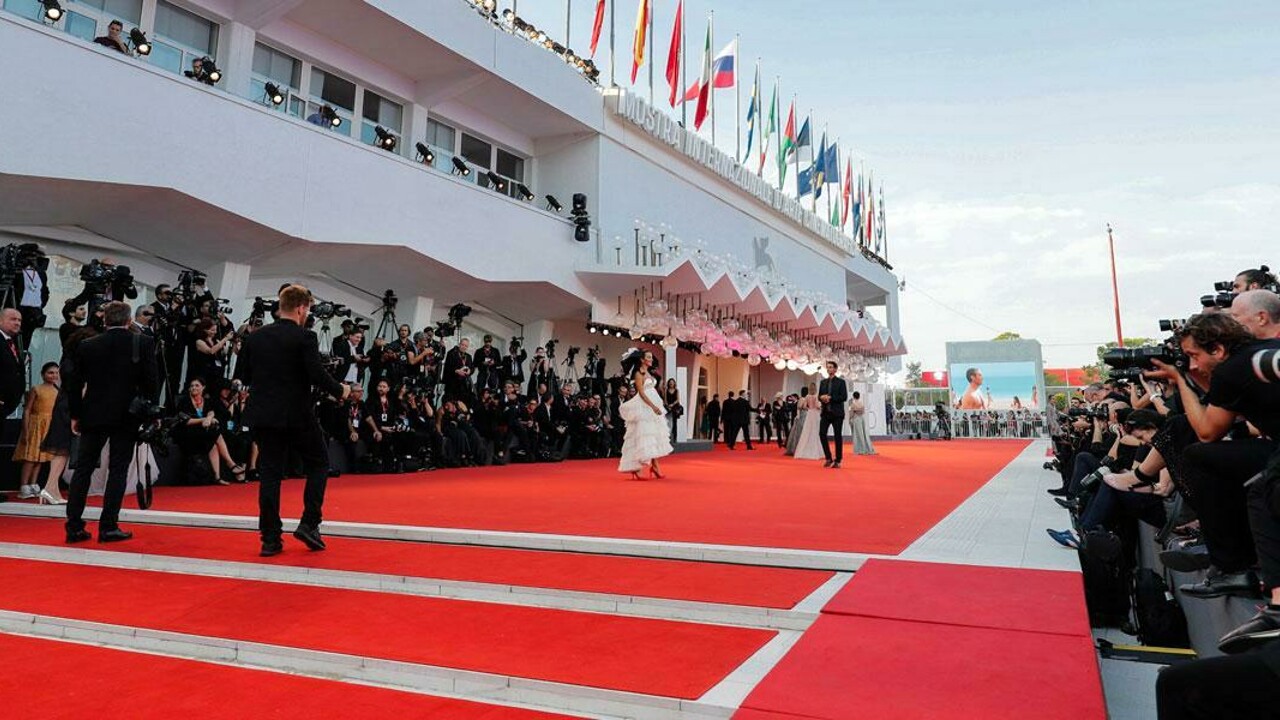
While waiting for the spotlight to be turned on the Lido and Venice 79 a look at the Venice Film Festival in its never-ending journey through film history.
I raise my eyes from a copy of the 2022 Venice Film Festival and, subconsciously, my mind wanders to a verse by Sappho: Raise high the roof beam, carpenters. Like Ares comes the bridegroom, taller far than a tall man (yes, the verse Salinger used to title his funniest novella). Why? Rationally, I explain that away as my need to interpret the arrival of the groom as the arrival of a surplus of reality, as well as the interruption of a moment when reality had been exorcized, pushed away. The bridal alcove is being built and the groom comes to initiate the ceremony: he is the bearer of discontinuity between what was before and what will be after, the cause of a new story, and new possibilities.

It is apparent that, over the twelve years since annus horribilis 2010, the Venice Film Festival recouped all the time and chances lost with a brand new approach towards what guarantees the success of a film festival: networking, logistics, attractiveness for the press and movie stars, and an awarding pattern closely matching the Oscars’. The 2020 edition, seeing its courageous resistance and impeccable organization, and the 2021 edition, produced under strict pandemic-derived regulations still, have been a sort of long suspension – not from work, of which there had been plenty, but from the exhausting reality of isolation. A big, enthusiastic signal of courage. And look! Here comes the groom: we will back to reality. No more dauntless resistance and struggle against fear, but structural complexities and daily grind. The feeling is that managing a film festival as important as the VFF is, today, much more complicated than it used to be. In fact, festivals used to be a moment of suspension of rivalry between film majors, who would celebrate cinema in a very temporary no-war zone. Today, festivals are the places where ever-changing cinema shows the crudest conflicts that permeate its industry. Festivals are part of the revenue-generating effort of filmmaking, and must take position on open issues, from technological development to easy access to credit, as reminded by VFF director Barbera in the last press conference.

As new problems show up, old ones won’t leave. We thought we were past the age-old conflict between auteur and commercial cinema, with the VFF standing out with an intelligent mix of the two, and now more structural issues demand attention: the streaming-versus-theatre distribution choices, the interruption of filmmaking in the Far East, extant difficulties for less-endowed production markets, and the hyper-concentration of films that are waiting for distribution and wouldn’t mind a little help on the VFF’s part.
Here comes the groom, here comes reality, here comes a new chapter where the uncertain trumps the certain. The programme of the 2022 Venice Film Festival is, on paper at least, interesting and balanced. All titles pay respect to the history of cinema (also, the Classic section will be amazing this year) and look into the future after six years of a consolidated Virtual Reality section, which honestly appears much more serious and effective than what Cannes did, winking at teenagers with their TikTok partnership.
Wayfarers, the only way forward is forward…